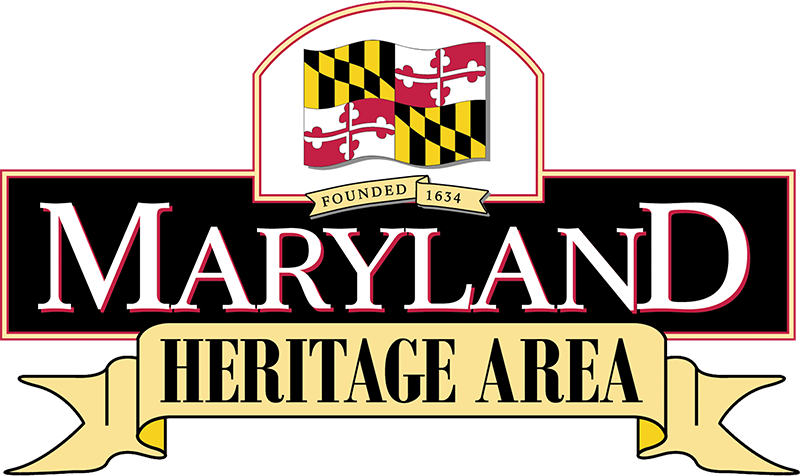Search Newspaper Articles
How to Search for an Article
Enter as many details as possible. Leave empty fields for which you have no information.
Enter dates as follows: mm/dd/yyyy. For example, enter September 17, 1862 as 09/17/1862. You can search by day, by month, by year, or any combination of the three.
If uncertain about the correct spelling of a County or City/Town, enter the portion of the word for which you do have correct spelling. For example, enter “Gettys” if you are uncertain if the correct spelling is Gettysburg or Gettysberg.
Note that the Keyword Search will search for a word, not a phrase. The results will appear in order of the most relevant first.
Negro Equality (September 19th, 1866)
>From The Frederick Examiner; Frederick, MD
Summary: The Republican Citizen pokes fun at the "Garbage Cart's" talk of Negro equality, which it says is impossible, although it wants to see "colored people get along genteelly and respectably in the world."
Full Details"Bastardy" (October 3rd, 1866)
>From The Frederick Examiner; Frederick, MD
Summary: Discussion of a case of inter-racial bastardy brought under the recent Civil Rights Act and remarks on the question of Negro equality.
Full DetailsRebel Hatred (?) of Negroes (October 4th, 1866)
>From The American Sentinel; Westminster, MD
Summary: The Sentinel tells "More Anon" that Frederick Douglass is better than "any Rebel who walks the earth" because he "smells neither of Bribery or Treason."
Full DetailsThe Freedmen's Bureau (October 10th, 1866)
>From The Frederick Examiner; Frederick, MD
Summary: Editorial against the Maryland Union's view of the cost of the Freedmen's Bureau bill. The Examiner, using communication from Governor Patten of Alabama and Gen. O. O. Howard, head of the Freedmen's Bureau, shows that the people of Alabama, both whites and Negroes, are very destitute and relying upon the rations handed out through the Freedmen's Bureau. The Alabama governor had requested three more months of rations for his people. There are about 2 whites helped by these rations for every Negro according to the statistics. The rations, a part of the Freedmen's Bureau bill, are helping members of both races. The Examiner says, "When the Union again undertakes to show that the Freedmen's Bureau bill is a cause of reproach to those who voted for it, we advise it to produce stronger arguments than those it contained last week."
Full DetailsAnnual Statement - Board of School Commissioners (October 11th, 1866)
>From The American Sentinel; Westminster, MD
Summary: The statement issued by the Board of School Commissioners of Carroll County for 1866 includes $22.50 paid to "Colored Schools" as required by law.
Full DetailsConservative Platform (October 17th, 1866)
>From The Frederick Examiner; Frederick, MD
Summary: Short rhyme about African Americans applicable to the Conservative Platform.
Full Details6 Cents Reward (October 24th, 1866)
>From The Frederick Examiner; Frederick, MD
Summary: Notice: Offers six cents reward for the return of a “dark Mulatto Boy” named Calvin Fisher who had been apprenticed to Thomas Baker of New Market to learn farming.
Full DetailsCol. Maulsby Elected (October 24th, 1866)
>From The Frederick Examiner; Frederick, MD
Summary: Col. Maulsby is now the Johnson party candidate for Congress after the withdrawal of Independent Negro Suffrage candidate Aaron Davis in favor of Col. Maulsby. Circumstances around the withdrawal are unclear, but there may have been a guarantee between Maulsby and Davis that if Davis withdrew and Maulsby was elected, that Maulsby will not "close his eyes entirely to the unfortunately condition of the hapless darkey."
Full DetailsCivil Rights in Petersville District with a Vengeance (October 31st, 1866)
>From The Frederick Examiner; Frederick, MD
Summary: Letter to the Examiner from "Burkittsville" telling the story of a white man who applied to vote and initially was refused because he once discouraged a Negro from becoming a soldier. The letter writer says the Register then took the oath of a Negro regarding the incident. The Register, after hearing the Negro's testimony, reversed his decision and granted voting privileges to the white man who had been denied them the year before. The writer is dismayed that Negro testimony has thus enabled another "rebel" vote and that the testimony of a Negro was allowed to supersede the testimony of the white man which would have denied that vote.
Full DetailsQuery (November 21st, 1866)
>From The Frederick Examiner; Frederick, MD
Summary: Examiner asks the Citizen whether it will follow the example of some major U.S. newspapers and come out in favor of Negro suffrage.
Full Details


